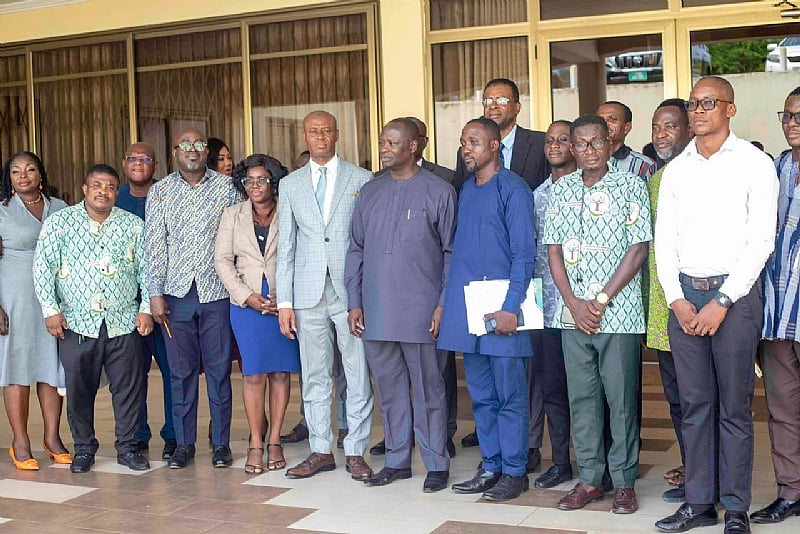The Forest Plantation Development Fund (FPDF) Board, established in Ghana under Act 583 of 2000 and subsequently amended by Act 623 in 2002, plays a crucial role in the nation’s efforts to restore its depleted forest cover and promote sustainable timber production. The FPDF’s core mandate is to provide financial backing for private sector engagement in commercial forest plantations on suitable lands. This involves offering financial support for plantation establishment and development, alongside conducting research and providing technical guidance to individuals and entities involved in commercial timber production. Recognizing the importance of the FPDF’s mission in addressing environmental degradation and contributing to economic growth, the government has pledged to increase its funding to bolster the Board’s impact and effectiveness. This commitment signifies a renewed focus on leveraging the FPDF as a key instrument in achieving Ghana’s environmental and economic objectives.
During a recent visit to the FPDF Board, the Minister of Lands and Natural Resources, Emmanuel Armah-Kofi Buah, affirmed the government’s intention to not only enhance funding but also to strengthen monitoring and evaluation mechanisms. This dual approach aims to ensure the responsible and efficient utilization of allocated resources, maximizing the impact of investments in forest plantation development. The Minister emphasized the critical role of the FPDF in reclaiming degraded forest areas, a vital step towards reversing the negative impacts of illegal mining and unsustainable logging practices. He also highlighted the importance of aligning the Board’s activities with the broader national environmental agenda, underscoring the government’s commitment to a holistic approach to forest management and environmental protection.
The Minister acknowledged the continuing relevance of the FPDF’s objectives and pledged to revisit its operational framework to enhance its effectiveness. This commitment suggests a potential review and update of the existing legislation governing the Board, possibly through a further amendment of Act 623, to align it with current realities and the government’s “resetting agenda.” This reassessment aims to optimize the Board’s structure and operations, ensuring its ability to effectively address the evolving challenges in the forestry sector. The Minister’s visit also served as an opportunity to engage with the management and staff of the Board Secretariat, commending their dedication to promoting forest plantation development and acknowledging the significant strides made in restoring lost forest cover.
However, despite the Board’s commitment and the staff’s efforts, several operational challenges hinder the FPDF’s ability to fully realize its potential. A key concern highlighted by Jason Nunoo, a Technical Officer at the Board Secretariat, is the continuous decline in funding from primary sources. This financial constraint limits the Board’s capacity to support private plantation development initiatives and effectively execute its mandate. Furthermore, the existing monitoring mechanisms for disbursed funds are deemed inadequate, raising concerns about the effective tracking and assessment of project outcomes. The Secretariat’s structure itself also requires attention to optimize its operational efficiency and effectiveness. These challenges necessitate urgent action from the Ministry to empower the Board to fulfill its constitutional mandate and contribute meaningfully to the government’s broader development agenda.
Addressing these challenges is crucial for the FPDF to achieve its intended impact. Mr. Nunoo underscored the importance of increasing funding and strengthening monitoring and evaluation frameworks as essential steps towards enhancing the FPDF’s effectiveness and maximizing its contributions to Ghana’s environmental and economic well-being. Increased funding would provide the necessary resources to support a wider range of plantation development projects, while strengthened monitoring mechanisms would ensure transparency and accountability in the use of funds, enabling a more accurate assessment of the impact of investments. Improvements in the Secretariat’s structure would streamline operations and facilitate more effective coordination and execution of the Board’s activities.
The Deputy Minister for Lands and Natural Resources, Yusif Sulemana, further addressed some of the pressing concerns. He reassured stakeholders that outstanding debts for seedlings procured for the Green Ghana initiative, a national tree-planting campaign, would be settled promptly. This commitment is crucial for maintaining the credibility of the initiative and encouraging continued participation from suppliers and stakeholders. Mr. Sulemana also echoed the need to amend the governing Act 623, emphasizing the importance of reviewing and updating the Board’s mandate to align with current needs and priorities. This includes a proposal to formally establish the FPDF as an agency under the Ministry, which would provide greater institutional clarity and strengthen its position within the government’s administrative framework. This comprehensive approach—addressing funding limitations, reinforcing oversight mechanisms, and solidifying the Board’s institutional status—demonstrates a strong commitment to revitalizing the FPDF and empowering it to contribute significantly to Ghana’s sustainable development goals.














